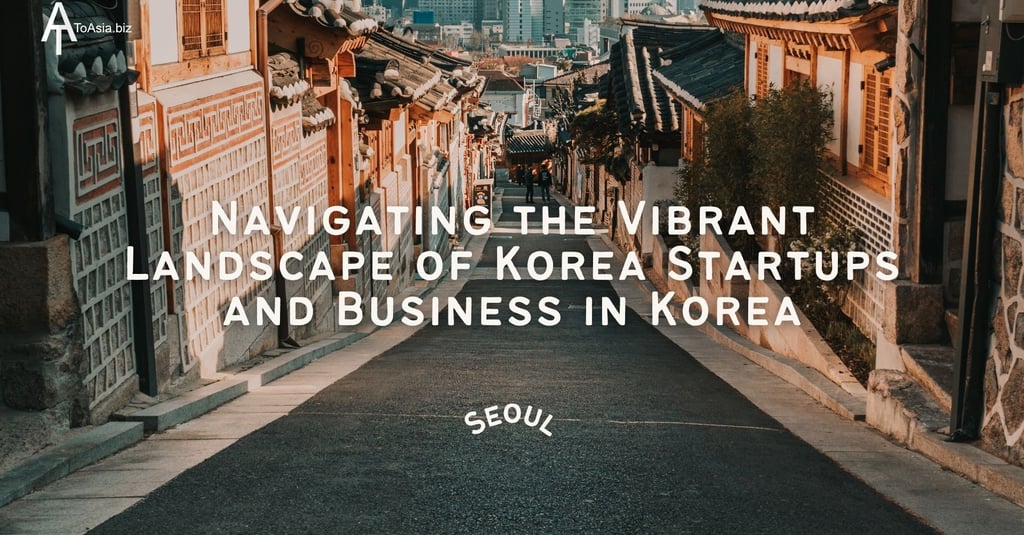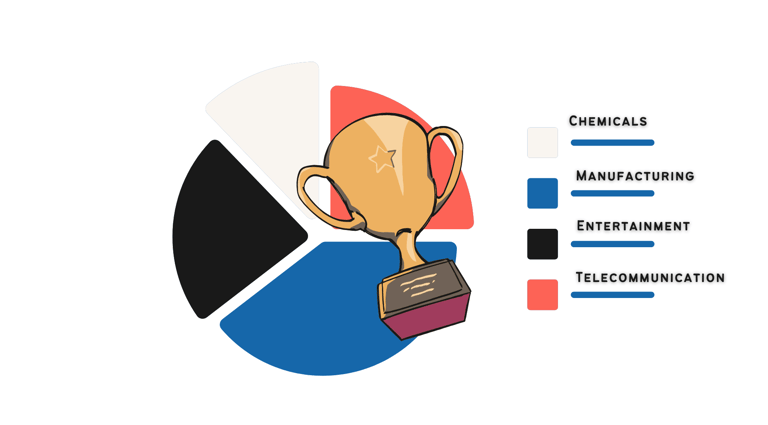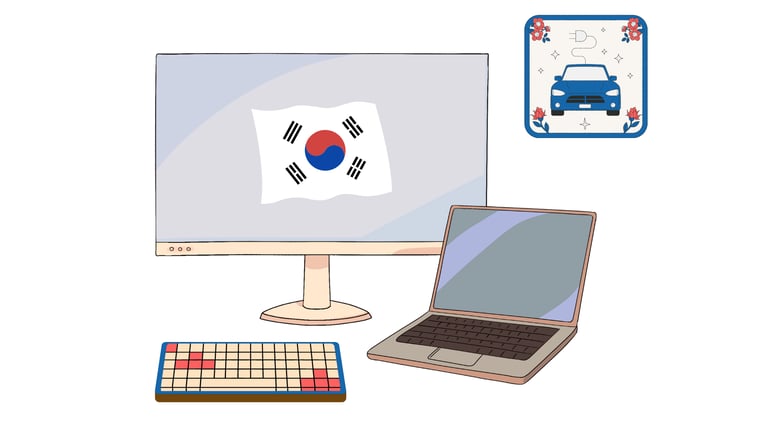Navigating the Vibrant Landscape of Korea Startups and Business in Korea
ASIA BUSINESS FACTSBUSINESS TIPSSOUTH KOREA
Alan Wong
4/9/20249 min read


Business Landscape: Root of Korean Startup Craze
South Korea stands out in East Asia as a hub of economic activity, showing remarkable recovery and growth after its historical challenges.
In just a few decades, it has become the world's tenth-largest economy, which is a significant achievement.
South Korea’s economic journey is not only about its impressive statistics;
it's about a society that has skillfully combined its tech-savvy approach with a strong work ethic to build a thriving economy.
In 2023, South Korea's economy did face some challenges, leading to a conservative GDP growth rate of 1.7% as estimated by the IMF.
However, expectations for 2024 are brighter, with predictions of a 2.6% increase, indicating a hopeful upswing towards stronger economic health.
The South Korean government and financial institutions, including the Ministry of Economy and Finance, the Bank of Korea, and global organizations like the OECD and World Bank, have acknowledged the slight slowdown but remain optimistic about the future, expecting growth rates between 2.1% to 2.4% in 2024.
This optimistic forecast reflects South Korea's strong economic foundation and its capacity to grow amidst international economic fluctuations.
The country's economy is driven by its forward-thinking stance on sectors such as semiconductors, cars, and telecommunications.
Understanding South Korea's economy also means looking at its strategic position.
It connects important seas, serving as a bridge between age-old traditions and global commerce.
This is especially evident in its capital, Seoul, which is always bustling with business activity.
As we take a closer look at South Korea's business scene, we'll explore how traditional ways mesh with modern business practices.
For anyone interested in engaging with South Korea’s market, understanding this balance of old and new, along with the country’s strong economic signals, is key.
The blog will guide you through South Korea's business culture, help you understand its economic strengths, and offer insights into effectively entering and operating in this vibrant market.
Korea Startup Ecosystem
With 100% LTE coverage and the world's fastest internet, South Korea is an ideal launchpad for tech startups, boasting an ecosystem valued at $211 billion far higher than the global average of $34.6 billion.
It's a breeding ground for unicorns and successful exits, highlighted by standout startups such as Dunamu, Yanolja, Toss, and Kakao Mobility.
Seoul's entrepreneurs disrupt the conglomerate-dominated economy, contributing to the country's objective to bolster its global unicorn presence and venture capital by 2027.
In 2023, South Korea's startup scene is robust, with over 15,000 startups energizing the economy.
These startups are drawing in substantial investments, with more than half a billion dollars annually nurturing their maturation.
The most promising sectors capturing investor interest include blockchain, fintech, biotech, the Internet of Things (IoT), as well as the beauty, fashion, and entertainment industries, each offering significant business opportunities for growth within Korea's innovative landscape.
South Korea's startup ecosystem is a vibrant landscape where resilience, innovation, and a forward-thinking mindset converge.
Here, technological advancements meet corporate support and entrepreneurial zeal, creating a fertile ground for burgeoning businesses.
This win-win approach involves large corporations providing application verification domains and mature business strategies, while startups offer product prototypes.
Big corporations like LG Nova scout for potential in areas like healthcare, energy, and AI, partnering with growth-stage startups to fuel future trends.
Meanwhile, NAVER has honed a 'light asset strategy,' forgoing traditional operations in favor of strategic alliances that enhance agility and market responsiveness.
The government, recognizing the vitality of this sector, has implemented initiatives and set ambitious targets to solidify South Korea's status as a leading entrepreneurial hub.
Korea's Startup Revolution
South Korea's robust economy, technological advancements, and supportive government policies make it an attractive destination for businesses looking to expand internationally.
Its dynamic startup ecosystem, coupled with its strategic location in East Asia, offers promising opportunities for businesses to thrive and grow.
Whether you're a multinational corporation or a budding startup, doing business in South Korea can be a rewarding and profitable venture.
With over 50 years of experience combined with our team at ToAsia.biz, we are ready to provide business consultation services to lead your business into the Asia Pacific region - profitably.
Talk to us now and see how our growth strategy is different from business consultants out there where our focus is to help you expand at the right pace, staying lean and profitable.


Leading Business Industries in South Korea
South Korea’s economic narrative continues to be one of significant transition and promise.
It's a place where high-tech industries flourish, supported by government initiatives and fueled by a culture of innovation.
We'll spotlight the high-tech industries that are thriving within this innovative landscape.
We will touch upon the manufacturing industry, known globally for semiconductors and electronics, and the telecommunication sector that's setting the pace in digital connectivity.
Health tech will be featured for its breakthroughs in medical devices and pharmaceuticals.
We’ll also discuss the chemical industry, crucial for its R&D and high-value products.
Lastly, the entertainment sector, propelled by the Korean Wave, will be highlighted for its creative and cultural influence.
These industries together paint a picture of a nation that’s rapidly adapting and advancing on multiple technological fronts.


Manufacturing Business in Korea
South Korea's transformation into a high-tech industrial powerhouse is a story of precision, innovation, and strategic evolution.
At the forefront is the manufacturing sector, a multifaceted arena with world-renowned dominance in semiconductors, shipbuilding, automotive production, and consumer electronics.
These fields not only illustrate the nation's technical acumen but also its agility in adapting to global industrial shifts.
The semiconductor industry, a critical component of modern technology, benefits from South Korea's heavy investment in research and advanced manufacturing.
Similarly, shipbuilding, another cornerstone of the economy, reflects the country's engineering expertise and ability to meet the demands of global trade.
The automotive industry, including giants like Hyundai and Kia, continues to evolve with trends toward sustainability and innovation.
In electronics, household names such as Samsung and LG are examples of South Korean brands that have become synonymous with quality and advancement, signifying the robust nature of these industries for business ventures.
South Korea’s manufacturing narrative also embraces the digital revolution, with initiatives like the "Manufacturing Renaissance Vision" to modernize industrial structures, emphasizing smart, eco-friendly, and convergent approaches.
Government strategies support small and medium-sized enterprises (SMEs) in adopting smart factory technologies, aiming to significantly boost productivity and innovation.
The landscape of South Korean manufacturing is one where traditional industries converge with digital technologies, creating an ecosystem ripe with growth opportunities, particularly for businesses that can navigate the terrain of advanced manufacturing, automation, and intelligent production systems.
With a focus on the Fourth Industrial Revolution, South Korea's manufacturing sector is not just maintaining its relevance but is actively shaping the future of industrial productivity and innovation.


Telecommunications Business in Korea: Connecting the World
In South Korea, a country where being online is a way of life, the telecommunications sector thrives.
This industry stands out globally for its ultra-fast internet speeds and cutting-edge mobile technology.
South Korea offers a prime environment for digital businesses, as both consumers and enterprises prioritize high-speed, dependable connections.
The commitment to constant improvement in connectivity means that South Korea remains at the forefront of telecommunications innovation, making it an exciting market for any company in the digital space.


Medical and Health Business in Korea
South Korea's healthcare sector is at the forefront of digital health innovation, aiming to be one of the world's top digital competitors by 2030.
The country is recognized for integrating advanced technology in healthcare, like the paperless systems in Seoul National University Bundang Hospital.
Increased investment is fostering collaboration between academia and industry, particularly in health IT, genomics, and regenerative medicine.
There is a significant push to harness medical big data and standardize it across Korean hospitals for large-scale studies, enhancing the efficiency and efficacy of healthcare services.
This initiative includes building sophisticated systems for managing patient data and improving care, with a large percentage of hospitals adopting such digital solutions.
The government's commitment to the healthcare industry is reflected in funding increases and support for initiatives like the Healthcare Innovation Park, which encourages technological advances.
The focus on developing digital health ventures, especially those leveraging artificial intelligence, points to a future where digital health solutions are integral to medical and preventive care in South Korea.


Chemicals Business in Korea
South Korea's chemical industry is a crucial pillar of its manufacturing sector, making up a significant part of the country's exports and production.
It's home to global leaders in specialty chemicals, which supply high-quality materials to other industries, including batteries and displays.
This industry relies on importing raw materials and re-exporting high-value products globally.
Challenges like environmental regulations and supply chain changes push the sector to innovate and adapt, focusing on high-value-added materials.
Government plans and investments aim to support this evolution, creating opportunities for domestic growth and international partnerships.


K-Pop Cultural Impact: The Korean Entertainment Business in Korea
The Korean Wave, or "Hallyu," showcases South Korea's deep impact on global culture, prominently through K-pop, dramas, and films.
The government's support positions entertainment and media as economic drivers, using high-speed connectivity and digital innovation.
The success of K-pop and dramas on global platforms has turned South Korea into a content creator from a consumer, with productions like "Parasite" and "Squid Game" becoming international hits.
The entertainment industry's boom is seen as a testing ground for new media, attracting partnerships and expanding genres.
With high consumption rates and advanced infrastructure, South Korea is a fertile ground for creative ventures and digital content distribution.
This phenomenon has opened new business opportunities for creative industries and sparked a wave of cultural entrepreneurship.
Recognizing this trend, South Korea is launching a special "Hallyu visa" to attract cultural enthusiasts worldwide.
This visa is part of a broader strategy by the Ministry of Culture, Sports, and Tourism to bolster the arts and attract tourists, showcasing the role of culture as an economic stimulant.
The surge in K-pop's popularity has been a significant factor in the nation's tourism recovery post-COVID, with the industry contributing notably to South Korea's GDP.
The visa, along with government initiatives, is set to fortify South Korea's position as a cultural hub and a destination for K-pop and K-drama fans globally.




Korea Startup Support from the Government
South Korea's commitment to nurturing a robust startup ecosystem is ambitious and multifaceted, as evident in the "Comprehensive Startup Korea Plan."
With an allocation of $2.8 billion for 2024, the plan emphasizes increased financial support, blending investment with loans to expand funding avenues.
It targets significant investment into corporate venture capital and seed funds, steering towards private sector-led growth in startups.
The initiative includes innovative programs like the K-tech college which is an initiative aiming to harness international talent by pairing exceptional students from universities in developing countries with employment opportunities within South Korean startups.
Global TIPS is a government initiative designed to stimulate foreign investment in Korean startups by matching the investment amounts and international talents, thereby doubling the financial backing for these startups.
Recognizing the dynamism of this sector, the government aims to catapult Seoul into a leading unicorn hub with five startups entering the global top 100 by 2027.
Tax incentives for angel investors and venture capitalists complement these efforts, along with more welcoming visa regulations for foreign entrepreneurs, showcased by the D8-4 and E-7 visas.
The D8-4 visa in South Korea is tailored for entrepreneurs who have established a technology startup within the country, backed by investment from a recognized Korean venture firm or a startup incubator.
The E-7 visa caters to foreign professionals with specialized skills, particularly in areas where there is a shortage of domestic expertise, allowing them to contribute significantly to the South Korean economy.
Government agencies like Korea SMEs and Startups Agency (KOSME),
Korea Small Business Institute (KOSBI),
Korea Institute of Start-up & Entrepreneurship Development (KISED),
Small Enterprise and Marketing Service (SEMAS),
Korea Technology and Information Promotion Agency for SMEs (TIPA),
Korea Venture Investment Corporation (KVIC),
Korea Federation of Credit Guarantee Foundations (KOREG),
and Korea Technology Finance Corporation (KIBO), are providing comprehensive support to startups, from financial backing to technological development, ensuring a conducive environment for business growth and international expansion.
With over 100 co-working spaces and 150 accelerators, spaces like Space-K which is an international platform fostering a community for startups, emphasizing private sector leadership with government support, making it accessible for young global entrepreneurs to collaborate and innovate.
HEYGROUND is another to exemplify the government's approach to fostering collaboration and entrepreneurship.
The "Startup Korea Fund" and sectoral growth initiatives aim to elevate the global stature of Korean startups, encouraging deep tech and innovative ventures to expand internationally.


Alan Wong is founder of ToAsia.biz and a startup mentor with over 20 years of professional experience managing software, Saas and consulting services MNCs.
About Author
Copyright © 2026 ToAsia.biz


We lead your business to Asia
Our Business Growth Experts help SaaS businesses achieve growth in Asia and become profitable FAST.
Send us a message via WhatsApp
